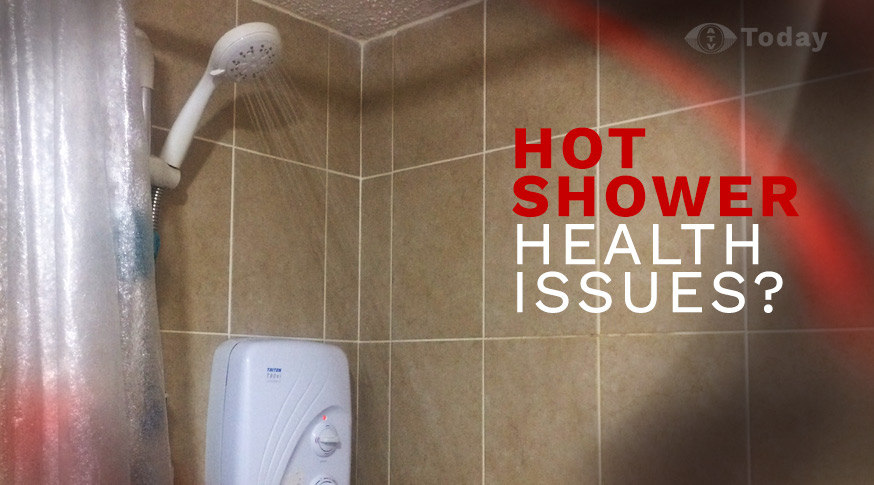Is a steamy shower causing more harm than good?
Health experts warn that millions of Brits are at risk of skin and heart problems due to hot showers. The comfort and immediate satisfaction derived from a steamy shower may act as a double-edged sword, potentially affecting both skin and cardiovascular health in the long term.
Bathroom specialist Plumbworld is cautioning individuals about the potential hazards associated with hot showers. This emerging health concern shines a light on an often overlooked daily habit that could be compromising the well-being of individuals across the UK.
Eleanor Potter, Head of Strategic Sourcing at Plumbworld:
“Understanding the potential health risks associated with hot showers is crucial for making informed decisions about our daily routines. From drying out our skin and hair to posing risks for those with heart conditions or asthma, the impact of excessively hot showers extends beyond mere discomfort. It serves as a reminder of the delicate balance required in our pursuit of personal hygiene and comfort.”

Top Ten Concerns:
-
Dry Skin: Hot water strips the skin of its natural oils more aggressively than lukewarm water does. This can lead to a disruption of the skin’s natural moisture barrier, resulting in dryness, flakiness, and uncomfortable itchiness. This issue can be particularly challenging for those already suffering from dry skin conditions.
- Worsening Skin Problems: Conditions such as eczema or psoriasis can significantly worsen after hot showers. The intense heat exacerbates irritation and inflammation, leading to more severe outbreaks and discomfort. Hot water can also strip away essential oils and moisture, crucial for keeping affected skin calm and hydrated.
- Damaged Hair: Similar to skin, hair possesses its own natural oils that maintain its health and moisture. Hot water can strip away these oils, leaving hair dry, brittle, and prone to breakage. Over time, this can lead to weakened hair strands, split ends, and a dull appearance.
- Extra Work for Your Heart: The heat from a hot shower causes blood vessels to dilate, requiring the heart to pump harder to maintain blood flow. This added strain can be problematic for those with pre-existing heart conditions, potentially leading to increased cardiovascular stress.
- Blood Pressure Drops: The vasodilation effect from the heat can also cause a sudden drop in blood pressure. For individuals with certain cardiovascular conditions, this drop can manifest as dizziness or lightheadedness, increasing the risk of falls or other injuries within the shower.
- Risk of Fainting: The combination of heart strain and sudden drops in blood pressure significantly increases the risk of fainting. This is particularly dangerous in the shower, where falls can lead to serious injuries.
- Worsening Asthma: The steam from a hot shower can exacerbate breathing difficulties for those with asthma by increasing air humidity. This higher humidity can make it more challenging for asthma sufferers to breathe, potentially triggering an asthma attack.
- Burns: Extremely hot water poses a direct risk of burns. This risk is heightened for children, the elderly, and individuals with certain neurological conditions or diabetes, who may have reduced sensitivity to temperature and may not realize that the water is too hot until it’s too late.
-
Germs: Warm, moist environments are breeding grounds for bacteria and fungi. Showers, especially if not regularly cleaned, can harbour pathogens that cause infections. This risk is heightened in hot showers, where the steam can carry germs directly into the respiratory system.
- Trouble Sleeping: Although a hot shower can initially feel relaxing, the resultant increase in body temperature can interfere with the body’s natural cooling process, necessary for sleep. Cooling down signals to the body that it’s time to sleep, and a hot shower before bed can delay this process, making it harder to fall asleep.
Eleanor Potter, Head of Strategic Sourcing at Plumbworld:
“Moderation and awareness are key. Opting for shorter, lukewarm showers can help minimise these risks, ensuring a healthier approach to personal care. Additionally, implementing a post-shower routine that includes the application of moisturiser can significantly aid in replenishing the skin’s natural barrier. Choosing a moisturiser suited to your skin type and applying it while the skin is still damp can lock in moisture, combat dryness, and provide a protective layer against environmental factors. By taking these steps, we can protect our well-being while enjoying the benefits of a refreshing shower.”












